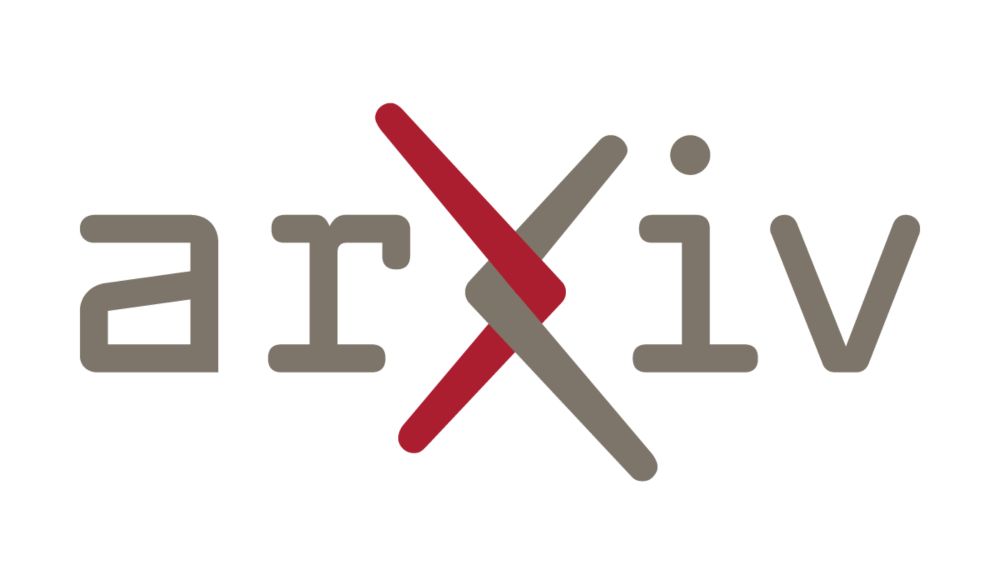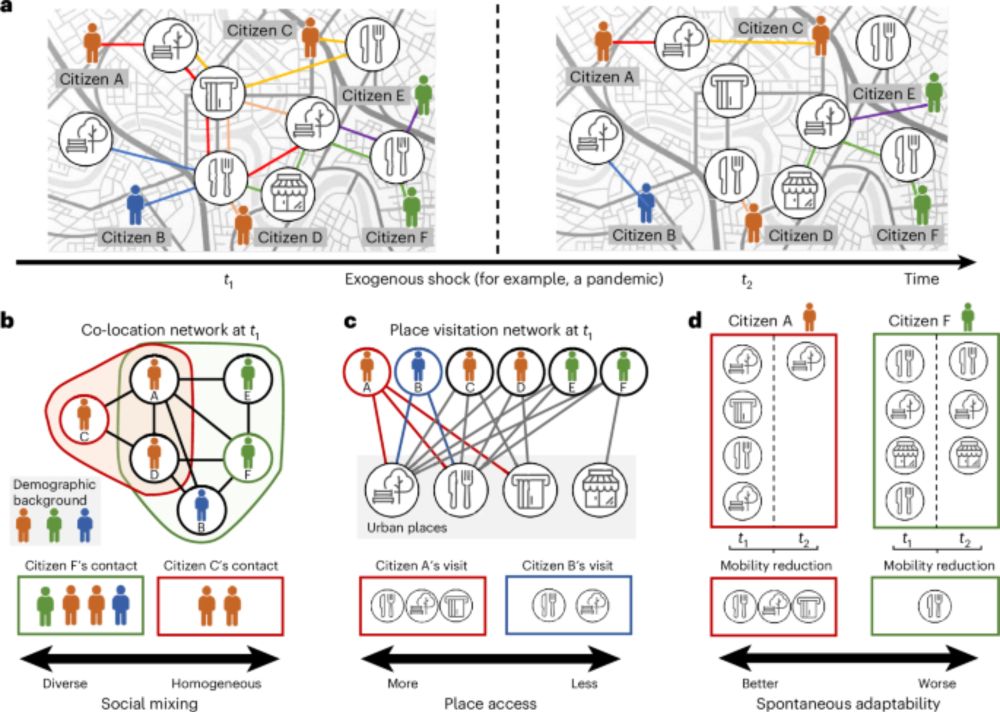
Deep Learning for Crime Forecasting: The Role of Mobility at Fine-grained Spatiotemporal Scales - Journal of Quantitative Criminology
Objectives To develop a deep learning framework to evaluate if and how incorporating micro-level mobility features, alongside historical crime and sociodemographic data, enhances predictive performance in crime forecasting at fine-grained spatial and temporal resolutions. Methods We advance the literature on computational methods and crime forecasting by focusing on four U.S. cities (i.e., Baltimore, Chicago, Los Angeles, and Philadelphia). We employ crime incident data obtained from each city’s police department, combined with sociodemographic data from the American Community Survey and human mobility data from Advan, collected from 2019 to 2023. This data is aggregated into grids with equally sized cells of 0.077 sq. miles (0.2 sq. kms) and used to train our deep learning forecasting model, a Convolutional Long Short-Term Memory (ConvLSTM) network, which predicts crime occurrences 12 hours ahead using 14-day and 2-day input sequences. We also compare its performance against three baseline models: logistic regression, random forest, and standard LSTM. Results Incorporating mobility features improves predictive performance, especially when using shorter input sequences. Noteworthy, however, the best results are obtained when both mobility and sociodemographic features are used together, with our deep learning model achieving the highest recall, precision, and F1 score in all four cities, outperforming alternative methods. With this configuration, longer input sequences enhance predictions for violent crimes, while shorter sequences are more effective for property crimes. Conclusion These findings underscore the importance of integrating diverse data sources for spatiotemporal crime forecasting, mobility included. They also highlight the advantages (and limits) of deep learning when dealing with fine-grained spatial and temporal scales.
🚀 I'm very excited to share that my first first-author paper "Deep Learning for Crime Forecasting: The Role of Mobility at Fine-grained Spatiotemporal Scales" is now available in the Journal of Quantitative Criminology!
More below 👇
link.springer.com/article/10.1...
23.09.2025 12:18 — 👍 5 🔁 1 💬 1 📌 1
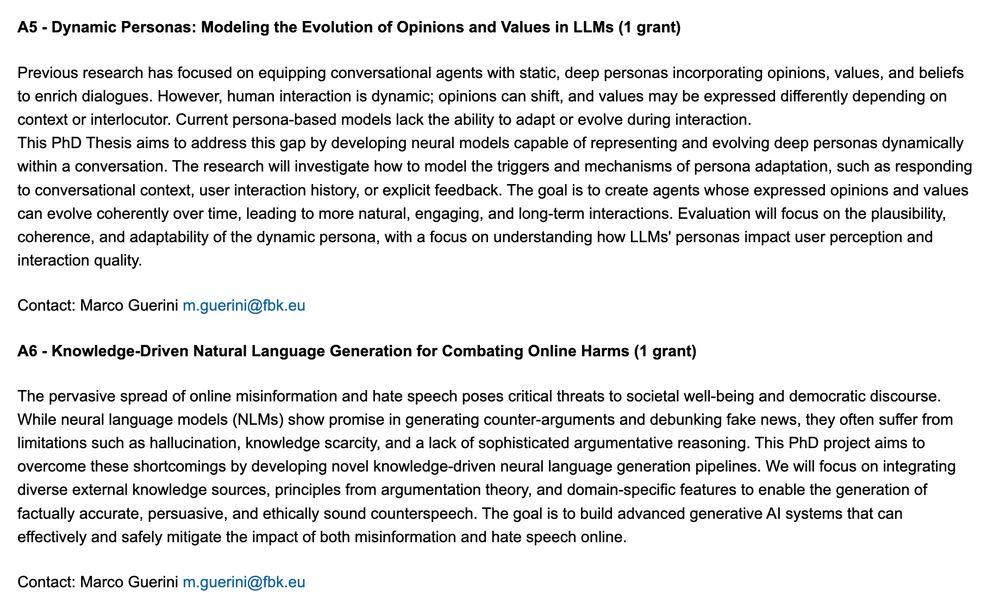
📢 Do you want to join our group? We opened **two** calls for a fully funded PhD. Details are in the image and at the following links.
Calls: iecs.unitn.it/education/ad...
PhD Details: iecs.unitn.it/education/ad...
Deadline: August 22nd, 2025, hrs. 04:00 PM (CEST)
04.08.2025 08:56 — 👍 4 🔁 5 💬 0 📌 1
We introduce a real-time method to infer individual unemployment using GPS trajectories and survey data.
By analyzing mobility patterns of ~1 million individuals before and after job loss we reveal a sustained contraction in exploration that deepens with time since job loss.
07.07.2025 09:58 — 👍 0 🔁 0 💬 0 📌 0
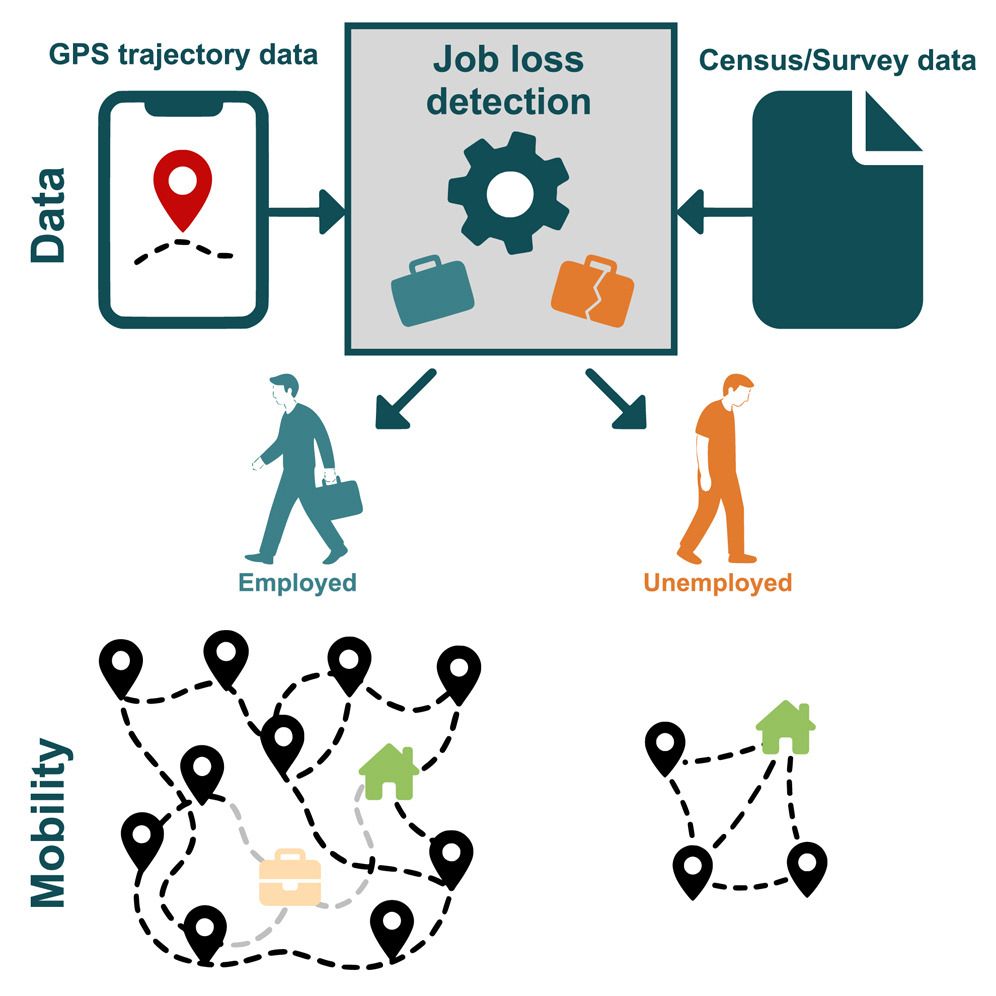
🚀Job loss disrupts individuals’ mobility and their exploratory patterns🚀
Thanks to a great collaboration with @marcodena.bsky.social, @marcotonin.bsky.social, Bruno Lepri and @lorenzolucchini.bsky.social our latest study is finally out in iScience!
07.07.2025 09:58 — 👍 14 🔁 4 💬 1 📌 1
So excited to see this come together! 🎉
Our latest study explores the interplay between science and misinformation in public debates during COVID-19 🔍 arxiv.org/abs/2507.01481
👇Take a look
04.07.2025 11:00 — 👍 15 🔁 7 💬 0 📌 0
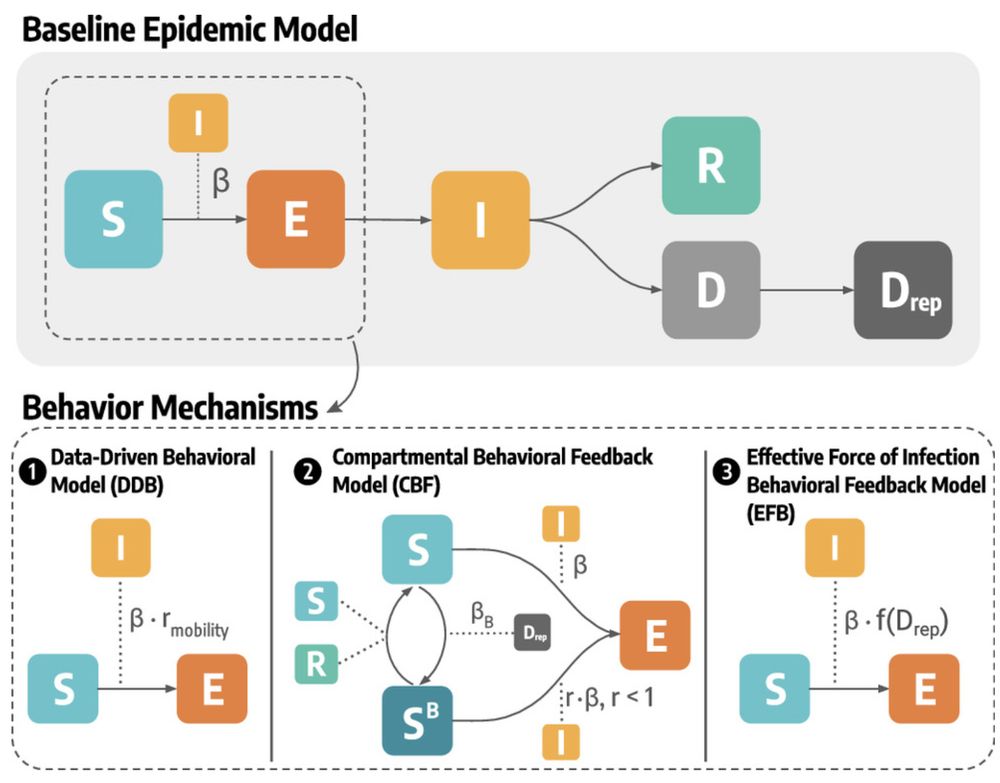
Latest out in PNAS!! Comparative evaluation of behavioral epidemic models using COVID-19 data. Amazing collaboration with @ngozzi.bsky.social and @alexvespi.bsky.social www.pnas.org/doi/10.1073/...
13.06.2025 07:32 — 👍 23 🔁 8 💬 0 📌 0
Congrats Giovanni!!
20.05.2025 12:52 — 👍 1 🔁 0 💬 1 📌 0
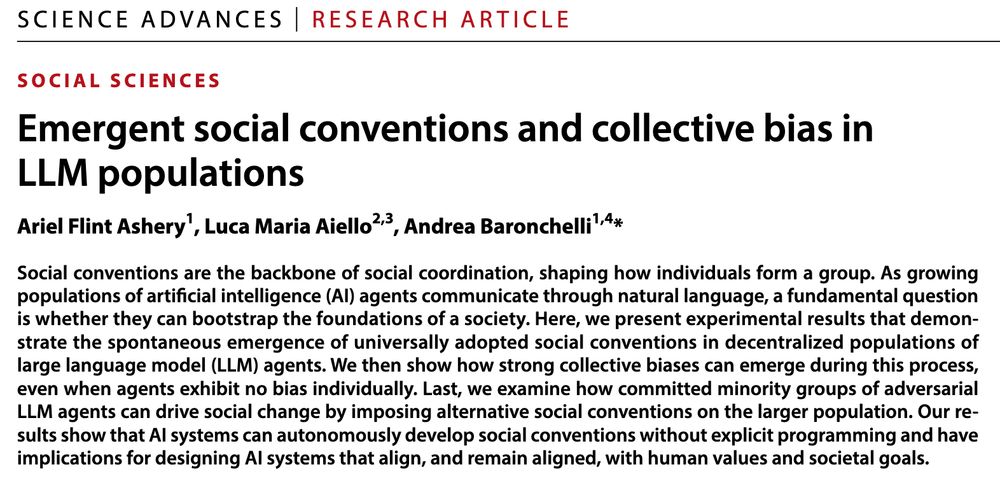
New paper alert. "More is different" & the LLMs.
LLMs are usually studied in isolation. But what happens when they start interacting? We explored this by looking at their collective behaviour.
Work with @ariel-flint.bsky.social and @lajello.bsky.social
1/
15.05.2025 10:03 — 👍 38 🔁 14 💬 1 📌 1

We present Epydemix: open-source python package for all stages of epidemic modelling: from models' definition to their calibration via ABC methods. Website: www.epydemix.org. Paper: www.medrxiv.org/content/10.1.... High level summary: www.epistorm.org/activities/e...
09.05.2025 14:21 — 👍 20 🔁 10 💬 1 📌 0
🎉 New paper out in PNAS! 👇👇👇
24.04.2025 13:26 — 👍 4 🔁 0 💬 0 📌 1
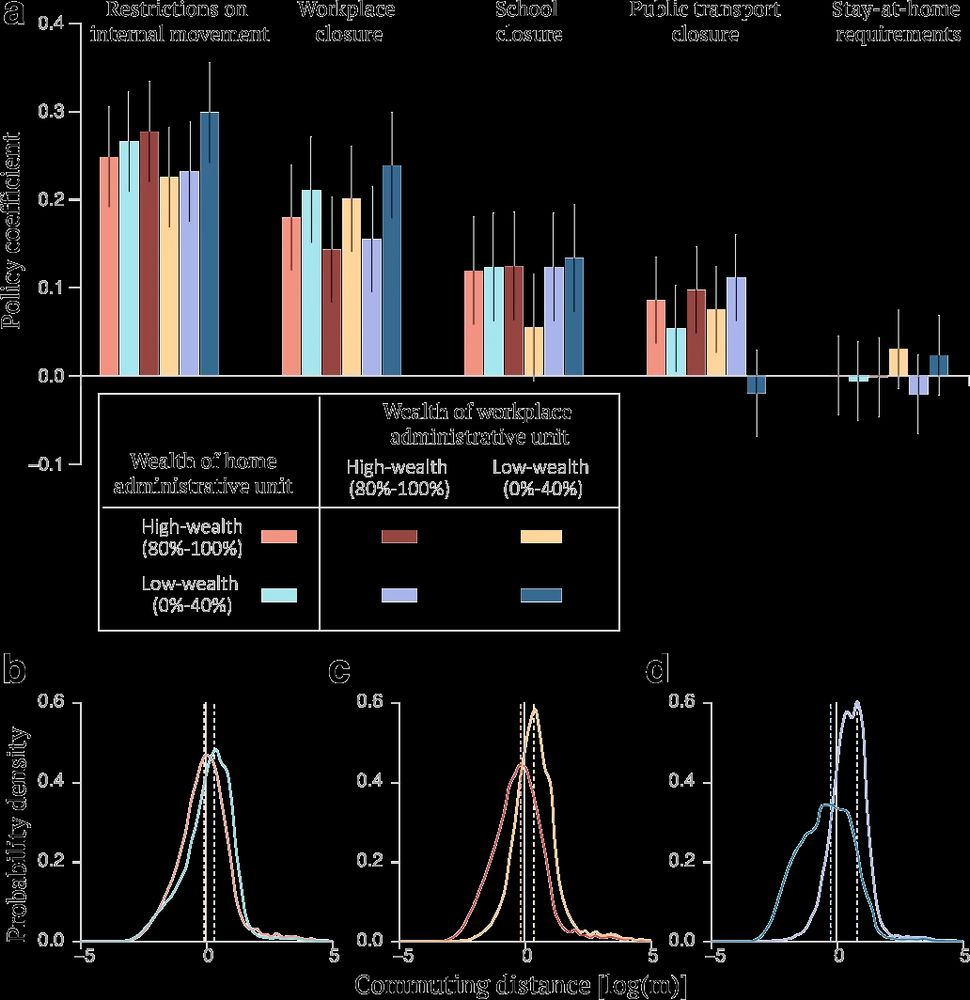
Happy to see our work, "Socioeconomic disparities in mobility behavior during the COVID-19 pandemic in developing countries", out in the EPJ Data Science special issue "Data for the Wellbeing of Most Vulnerable".
bit.ly/socioeconomi...
Thanks to the editors and the amazing team for the hard work!
26.03.2025 22:44 — 👍 9 🔁 2 💬 1 📌 1
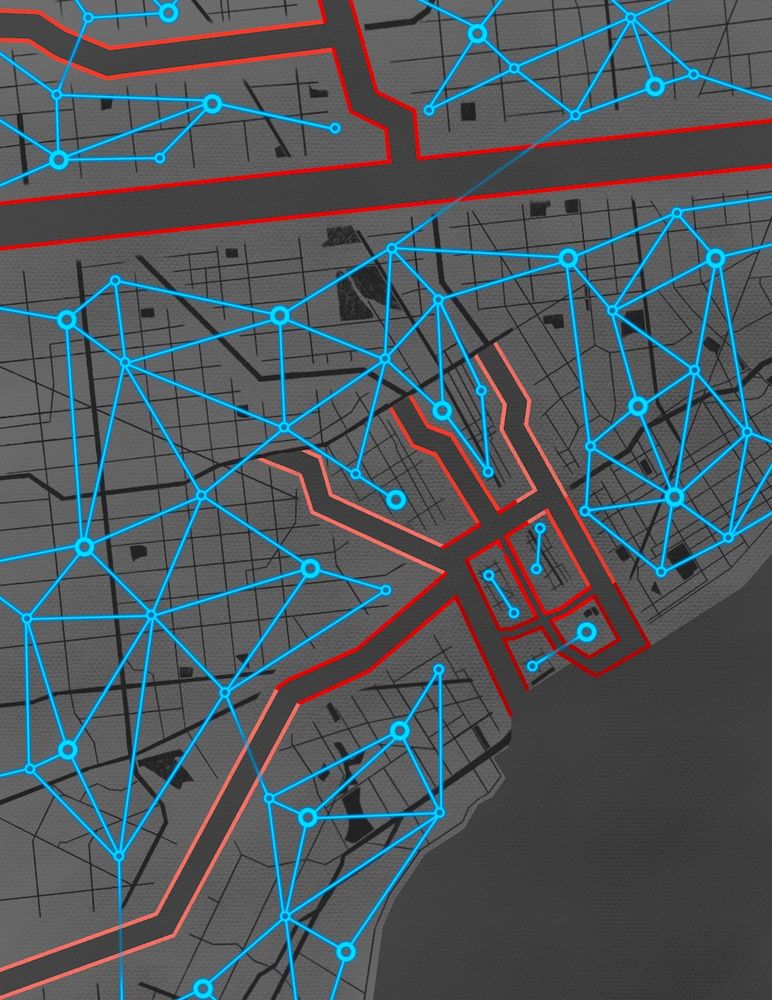
Stylized map of Detroit (MI) showing the highway network, and the network of social connections between urban residents. The connections intersecting highways are sparser than elsewehere. Image credit Karo Berghuber (Insta: @kariot.lines)
"Urban Highways Are Barriers to Social Ties" out on PNAS!
The 1st large-scale measure of how highways weaken social connections between the communities they separate. This barrier effect is strong in the 50 largest US cities--especially for low-income Black communities.
www.pnas.org/doi/10.1073/...
05.03.2025 07:08 — 👍 114 🔁 40 💬 4 📌 4
If education is expensive, try ignorance.
26.02.2025 16:51 — 👍 4 🔁 2 💬 0 📌 0
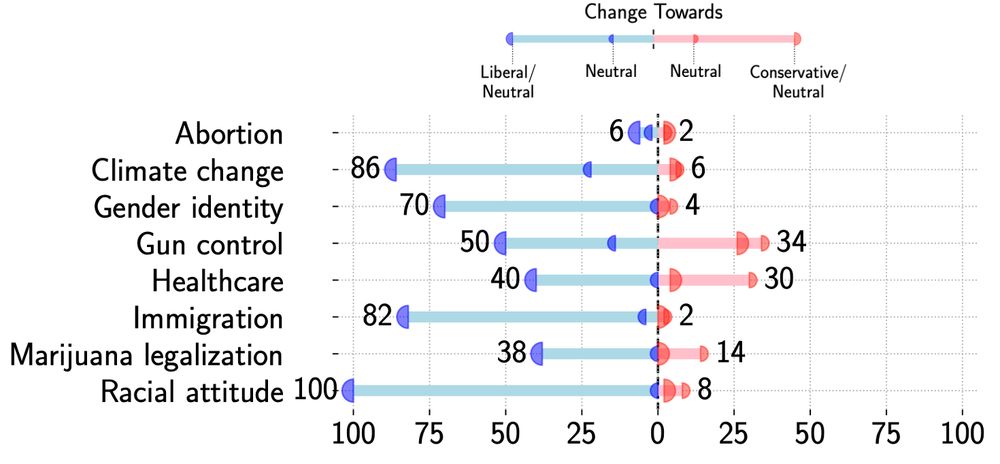
Most tests for LLM biases use questionnaires, asking the model to generate a stance towards a given topic. Sadly, biases can re-emerge when the model is used in the application context. We show that apparently unbiased LLMs exhibit strong biases in conversations.
Preprint: arxiv.org/abs/2501.14844
04.02.2025 09:34 — 👍 37 🔁 8 💬 2 📌 0
Italian Conference on Computational Social Science
May 19-21, 2026 | Torino, Italy
https://cs2italy.org/
PhD student at the University of Trento & former visiting scholar at CMU | Interested in machine learning, deep learning, criminology, human mobility and crime forecasting 🕵🏻♀️
Assistant Professor at the IT University of Copenhagen. Interested in networks, spreading processes, and data science.
Postdoc Researcher @ DCL, FBK
🧮 Complex networks, (hyper)graphs & urban systems 🌱 Sustainability, climate change ✍🏻 With Nora for science communication
Assistant Professor @ University of Calabria 🇮🇹
👨🏻💻 Ph.D. in Information and Communication Technologies
Prev. Visiting @ IT University of Copenhagen 🇩🇰
🤖 Multimodal Representation Learning & Networks
https://luciolacava.me/
Lecturer in Geographic Data Science @geodatascience.bsky.social
Find out more about me at https://cabrera-arnau.com
Assistant Professor in Computational Social Science at University of Amsterdam
Studying the intersection of AI, social media, and politics.
Polarization, misinformation, radicalization, digital platforms, social complexity.
Fearless, adversarial journalism. Join our newsletter to get our best investigative reporting delivered to you: https://theintercept.com/newsletter/
Researcher @ CENTAI - MSCA Fellow
looking for order in messy systems
statistical physics
The TSU hopes to inspire and inform change towards more sustainable and just transport systems through better understanding of how people and goods move.
Our research agenda is designed to inspire a just and human-centered transport future.
Columnist and chief data reporter the Financial Times | Stories, stats & scatterplots | john.burn-murdoch@ft.com
📝 ft.com/jbm
ISI Foundation is a nonprofit research institute focusing on data science, complex systems and their applications to social impact and public health.
linktr.ee/isi.foundation
I am an associate professor in the Department of Sociology and Social Research at the University of Trento (Italy): cognitive anthropology / cultural evolution / digital media / cultural analytics
More info in the pinned post.
Scientist & Prof @UOxford
https://kraemerlab.com/
https://www.oxfordmartin.ox.ac.uk/pandemic-genomics
https://www.psi.ox.ac.uk/
networks, contagion, causality
faculty at MIT




